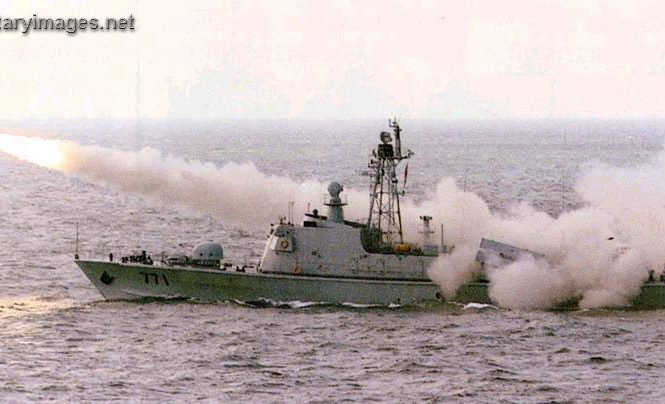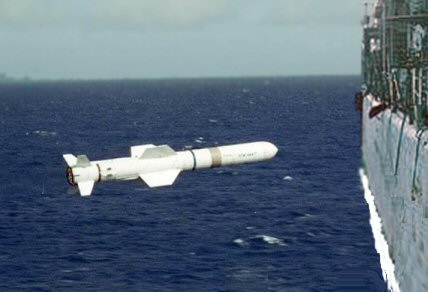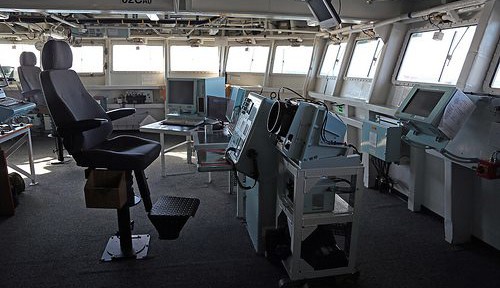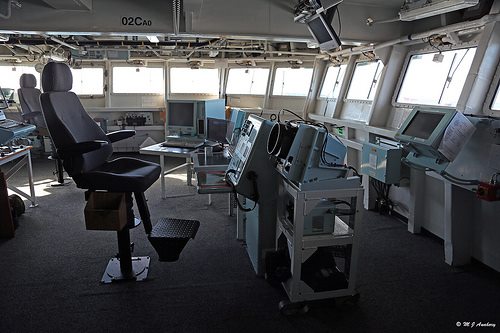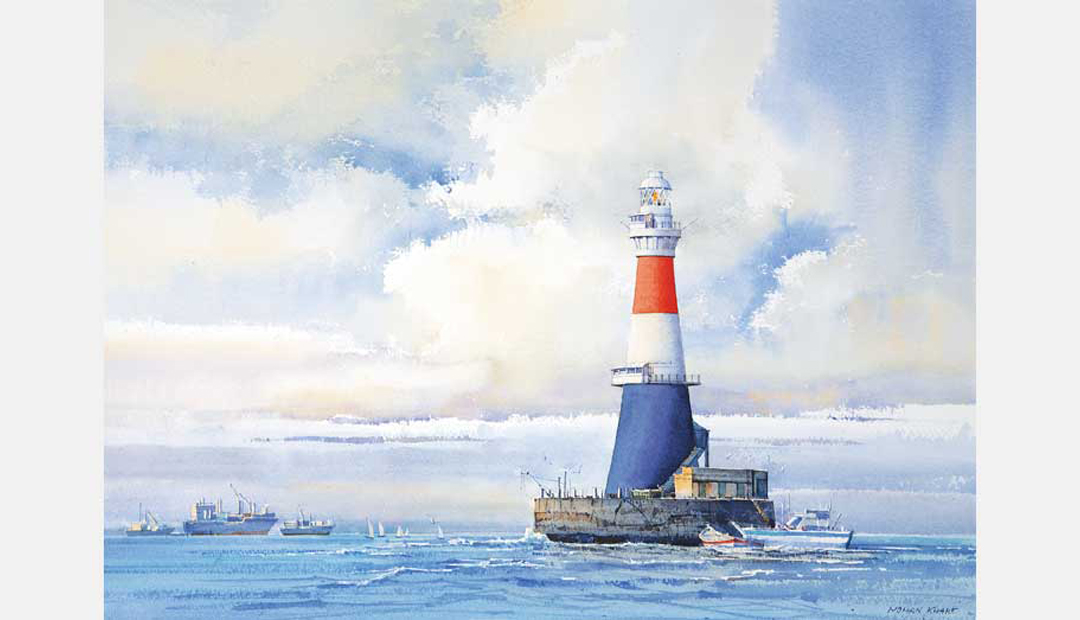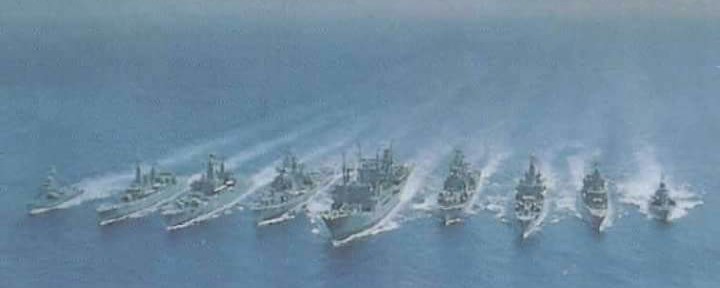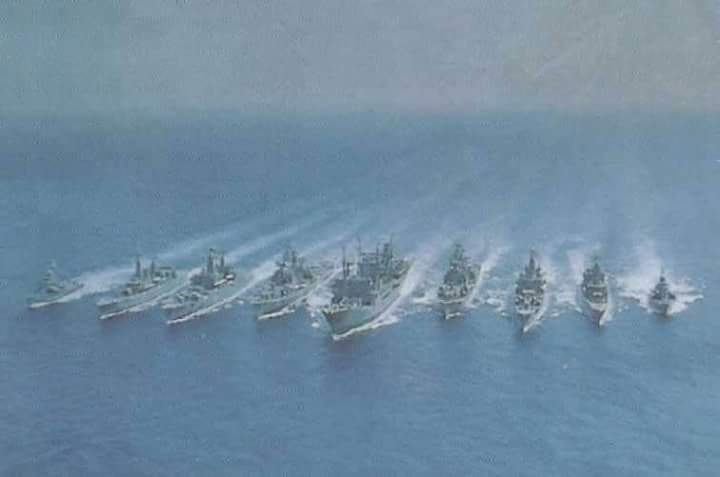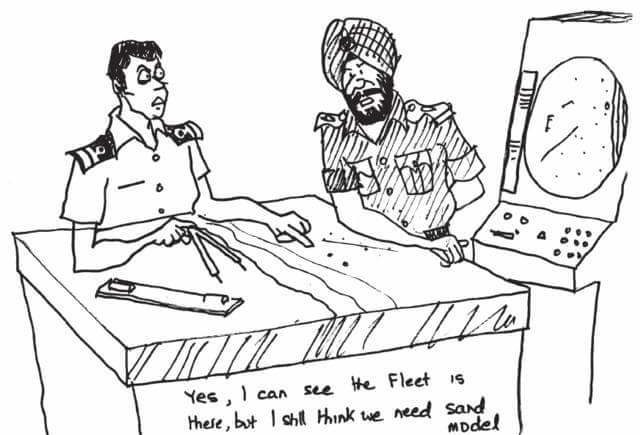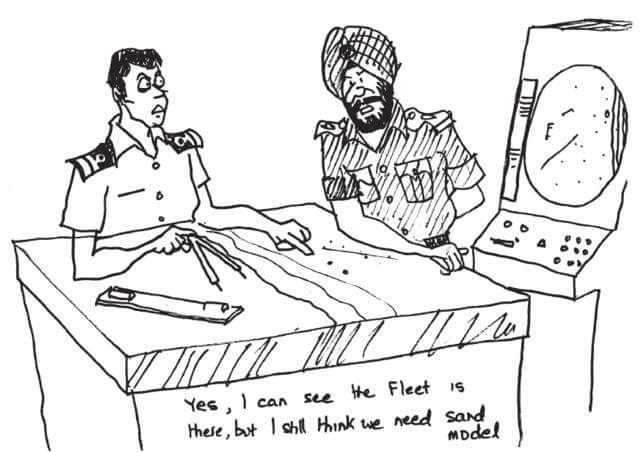I run a Facebook page called Lyrical wherein I often give theme based songs. The current theme, since 12th Aug 15, is The Best Raaga Based Songs In Hindi Movies.
The word Raga or Raaga actually means colour or hue but is associated with melody in Indian classical music. A raga uses a series of four or more musical notes upon which a melody is constructed. However, the way the notes are approached and rendered in musical phrases and the mood they convey are more important in defining a raaga than the notes themselves. In the Indian musical tradition, rāgas are associated with different times of the day, or with seasons. Indian classical music is always set in a rāga. Non-classical music such as popular Indian film songs and ghazals sometimes use rāgas in their compositions.
I am going to take Raagas at random and associate them with time of the day and with Hindi songs.
We start with Raag Bhairavi. It is a Hindustani music raaga of Bhairavi Thaat. A thaat is a mode in northern Indian or Hindustani music. Thaats always have seven different pitches (called swara) and are a basis for the organization and classification of raagas in North Indian classical music.

There are many Hindi films music directors who used Raag Bhairavi to base their songs. The most ardent of them were Shankar Jaikishen; so much so that when Jaikishen’s daughter was born she was named Bhairavi after their favourite Raag.
Song #1 Awaara hoon….
We start our journey into the Best Raaga based songs in Hindi movies with this song from the 1951 Raj Kapoor and Nargis starrer movie Awara that was also produced and directed by Raj Kapoor.
This song in Raag Bhairavi became an international hit. The song was written by Shailendra and sung by Mukesh.
Please enjoy: Awara hoon….
(aavaaraa huu.N, aavaaraa huu.N
yaa gardish me.n huu.N aasamaan kaa taaraa huu.N ) – 2
aavaaraa huu.N, aavaaraa huu.N
gharabaar nahii.n, sa.nsaar nahii.n
mujhase kisIko pyaar nahii.n – 2
usapaar kisiise milane kaa iqaraar nahii.n
mujhase kisIko pyaar nahii.n – 2
sunasaan nagar anjaan Dagar kaa pyaaraa huu.N
aavaaraa huu.N, aavaaraa huu.N
aabaad nahii.n barabaad sahii
gaataa huu.N khushiike gIt magar – 2
zakhmo.n se bharaa siinaa hai meraa
ha.nsatii hai magar ye mast nazar
duniyaa .a.a.a
duniyaa me.n tere tiir kaa yaa takadiir kaa maaraa huu.N
aavaaraa huu.N, aavaaraa huu.N
yaa gardish me.n huu.N aasamaan kaa taaraa huu.N
aavaaraa huu.N, aavaaraa huu.N
https://youtube.com/watch?v=VY1pWTek2sY%3F
Song #2 Naache man moraa, magan, dhiigadhaa dhiigii dhiigiiIn this song, I have taken the same Lyricist Shailendra as in Awaara hoon song, but with a different music director: SD Burman. The 1963 movie Meri Soorat Teri Aankhen was a classic as far as its songs were concerned. In addition to this song there were: Tere bin soone nayan hamaare and Puuchho na kaise maine rain bitaayi.
These songs came about in the following story line:
Raj Kumar (Ishwarlal) is a wealthy businessman and dislikes everything ugly. When his wife, Kamla (Achla Sachdev), becomes pregnant and gives birth to an ugly son, he asks the attending Dr. Mathur (Tarun Bose) to inform his wife that their child was still-born. Dr. Mathur places the child in the hands of Rahmat (Kanhaiyalal Chaturvedi) and his wife, Naseeban (Paro), who welcome him with open arms. But misfortune follows them, as the child, who is named Pyare (Ashok Kumar), accidentally burns their dwelling down, killing Naseeban. Rahmat then re-locates to his village when he teaches Pyare the skills required to play musical instruments and sing. Years later, Rahmat passes away, and informs Pyare that he is really a Hindu. Dr. Mathur fills the rest of the blanks for Pyare, and arranges a song and dance play and hopes that Raj will overcome his dislike for his now-grown son. But that does not happen, instead, Raj offers to pay some compensation so that Pyare can look after himself. When Pyare goes to Raj to return the money, Kamla sees him and asks him not to leave and ……
The tragedy of this song is that Pyare (Ashok Kumar) gets the impression that Kavita (Asha Parekh) is probably in love with him and his inner beauty. She loves his inner beauty but is actually in love with Sudhir Kumar (Pradeep Kumar). Pyare (Ashok Kumar) at the end of the movie sacrifices his own life in order to safeguard theirs.
Please enjoy in Raag Bhairavi, Tal: Tintal/Kaherava the most beautiful composition by SD Burman: Naache man mora….
aa aa aa…
naache man moraa, magan, dhiigadhaa dhiigii dhiigii -2
badaraa ghir aaye, rut hai bhiigii bhiigii
naache man moraa magan, dhiigadhaa dhiigii dhiigii -2
dhiigadhaa dhiigii dhiigii, dhiigadhaa
bansuri: tana~~N … tan tan tan tuu~~~~N tuu
sitar: tain tain tain, tataNtaN, tataNtaN, tataNtaN, tataNtaN
kuhuke koyaliyaa, kuhuke koyaliyaa, kahii.n duur papiihaa pukaare
daNaNaNaNaNaN
jhuulaa jhuule.n sakhiyaa.N, jhuulaa jhuule.n sakhiyaa.N, ke ghar aajaa baalam hamaare
ghir aaye, badaraa ghir aaye, rut hai bhiigii bhiigii
naache man moraa, magan, dhiigadhaa dhiigii dhiigii
naache re man moraa re
naache man moraa, magan…
tan ta tan taNa tanatu tan~~ tanatu
tainta taiN, tainta taiN
yahii.n ruk jaaye, yahii.n ruk jaaye, ye shaam aaj Dhalane na paaye
daNaNaNaNaNaN
TuuTe na ye sapanaa, TuuTe na ye sapanaa, ko_ii ab mujhe na jagaaye
ghir aaye, badaraa ghir aaye, rut hai bhiigii bhiigii
naache re man moraa, dhiigadhaa dhiigii dhiigii
e, naache man moraa re
naache man moraa, magan…
bansuri and sitar duet
tain tain tain, tataNtaN, tataNtaN, tataNtaN, tataNtaN
daNandaNandaNang DHUNg
chhup chhup aise me.n, chhup chhup aise me.n, ko_ii madhur giit gaaye
chhanchhanchhanchhan chhananchhan
giito.n ke bahaane, giito.n ke bahaane, chhupii baat ho.nTho.n pe aaye
ghir aaye, badaraa ghir aaye, rut hai bhiigii bhiigii
naache re man moraa, dhiigadhaa dhiigii dhiigii
e, naache man moraa, aa aa
naache man moraa, magan…
https://youtube.com/watch?v=CI0QTW4_iBc%3F
Song #3 Do hanson kaa joda bichhud gayo re…
I have given you many a bolg-post by the greats of the Hindi movie industry: Shakeel Badayuni as lyricist and Naushad Ali as the music director. Some of the finest songs in Hindi movies have been courtesy this pair. Naushad Ali’s larger family didn’t like his delving into music and he had to hide the fact of his composing music from them. And yet, he emerged as one of the greatest music directors in Hindi films. His compositions were often based on Raagas. Indeed, in his movie Baiju Bawra, the only movie in which he received the Filmfare Best Music Director award, each one of the 12 songs and a sargam is based on a Raaga. He was also adept in Western instruments such as accordion, clarinet and mandolin in his compositions and he has been credited with bringing Western musical notations into Indian Raagas.
This song from the 1961 movie Ganga Jamuna starring Dilip Kumar and Vyjaynthimala is a classic in Raag Bhairavi. It is penned by Shakeel Badayuni and sung by Lata Mangeshkar.
Please enjoy in Raag Bhairavi: Do hanson kaa jodaa bichhud gayo re….
Do hanso kaa joda bichhad gayo re
Gajab bhayo rama, julam bhayo re
Gajab bhayo rama, julam bhayo re
Do hanso kaa joda bichhad gayo re
Gajab bhayo rama, julam bhayo re
Mora sukh chain bhee, jivan bhee mora chhin liya
Papee sansar ne sajan bhee mora chhin liya
Piya bin tadape jiya, ratiya bitau kaise
Biraha kee aganee ko asuan se bujau kaise
Jiya mora mushkil me pad gayo re
Gajab bhayo rama, julam bhayo re
Gajab bhayo rama, julam bhayo re
Rat kee aas gayee, din kaa sahara bhee gaya
Mora suraj bhee gaya, mora sitara bhee gaya
Parit kar ke kabhee paritam se naa bichhade koyee
Jaisee ujadee hoo mai, ayese bhee naa ujade koyee
Bana khel mora bigad gayo re
Gajab bhayo rama, julam bhayo re
Gajab bhayo rama, julam bhayo re
Jite jee chhodungee saiyya naa dagariya toree
Bit jayegee yuhee saree umariya moree
Naino se hotee rahegee yuhee barsat balam
Yad me rotee rahungee teree dinarat balam
Nagar more man kaa ujad gayo re
Gajab bhayo rama, julam bhayo re
Gajab bhayo rama, julam bhayo re
Do hanso kaa joda bichhad gayo re
Gajab bhayo rama, julam bhayo re
Gajab bhayo rama, julam bhayo re.
https://youtube.com/watch?v=qSbMdrP5xbI%3F
Song #4 Gareeb jaan ke hamako na tum….
In our new series yesterday: ‘The Best Raaga Based Songs in Hindi Movies’, we started with one of the most popular Raagas in Hindi movies: Bhairavi or Sindh Bhairavi or Sindhu Bhiaravi.
In the first song, I told you that it was the favourite Raaga of the most accomplished duo of Shankar – Jaikishen. However, in addition to their song Awaara hoon as an example, I gave you songs of SD Burman (Naache man mora) and Naushad (Do hanson ka joda).
Lets now take up other music directors composing in Raag Bhairavi.
The first of these is OP Nayyar. Even though Raag Pilu and Pahadi were his favourites, he did delve in Bhairavi too.
I love this song of his from the 1956 movie Chhoo Mantar penned by Jaan Nisar Akhtar. OP Nayyar was one director who made some excellent songs for the comedian Johnny Walker. Here, though, he is the hero as Baiju or Baijnath singing to Anita Guha as Ratnavali.
Please enjoy Mohammad Rafi singing in Raag Bhairavi: Gharib jaan ke hamako na tum daga dena….
gariib jaan ke ham ko na tum daGaa denaa
tumhii.n ne dad.r diyaa hai tumhii.n davaa denaa
gariib jaan ke …
lagii hai choT kaleje pe umr bhar ke liye
ta.Dap rahe hai.n muhabbat me.n ik nazar ke liye
nazar milaake
nazar milaake nazaro.n se na tum giraa denaa
tumhii.n ne dad.r diyaa hai …
tumhaarii yaad ham.en har gha.Dii sataayegii
tumhaare bin to hame.n maut bhii na aayegii
tumhaarii yaad ko
tumhaarii yaad ko mushakil hai ab bhulaa denaa
tumhii.n ne dad.r diyaa hai …
https://youtube.com/watch?v=v_0Umxyv7o0%3F
Song #5 Laaga chunri mein daag…..
In the last series, I introduced Roshan (Roshanlal Nagrath) to you quite late in the 1960 movie Barsaat Ki Raat. Here I am re-introducing him quite early by giving you one of the best songs composed in Raag Bhairavi.
Roshan was born on 14th Jul 1917 and lived only for little more than 50 years. He died on 16th Nov 1967, much before many of his modern day fans were even born. And yet, such is his legacy that we listen to his compositions with the same gusto even today. He was the father of actor Rakesh Roshan and music director Rajesh Roshan and the paternal grandfather of actor Hrithik Roshan.
As with most Roshan’s songs, this song’s lyrics were penned by Sahir Ludhianvi. The voice is that of Manna Dey singing for Raj Kapoor in disguise as an old man. The name of the movie is the 1963 movie Dil Hi To Hai wherein Raj Kapoor acts opposite Nutan.
Please enjoy: Laaga chunari mein dag chhupayun kaise….
laagaa, chunarii me.n daag, chhupaaU.N kaise
laagaa, chunarii me.n daag
chunarii me.n daag, chhupaaU.N kaise, ghar jaaU.N kaise
laagaa, chunarii me.n daag …
(ho ga_ii mailii morii chunariyaa
kore badan sii korii chunariyaa ) – 2
aa … jaake baabul se, nazare.n milaaU.N kaise, ghar jaaU.N kaise
laagaa, chunarii me.n daag …
bhuul ga_ii sab bachan bidaa ke
kho ga_ii mai.n sasuraal me.n aake
aa … jaake baabul se, nazare milaaU.N kaise, ghar jaaU.N kaise
laagaa, chunarii me.n daag …
(korii chunariyaa aatmaa morii
mail hai maayaa jaal ) – 2
vo duniyaa more bAbul kaa ghar
ye duniyaa sasuraal
haa.N jaake, baabul se, nazare milaaU.N kaise, ghar jaaU.N kaise
laagaa, chunarii me.n daag …
aa aa~
dhiim ta na na na dir dir taanum
taa na dere na
dhiim ta na na na dir dir taan, dhiim ta dere na …
sapt suran tiin graam ba.nsii baajii
dir dir taanii, taa nii nii da, nii da pa ma, pa ma ma ga
ma dha ga ma ma ga re sa
dha dha keTe dha dha dha keTe dha dha keTa dha keTa
dharat paag pa.Dat nayii paraN
jhaa.Njhar jhanake jhana nana jhana nana
dir dir ta tuum ta da nii, ta na na na ta na na na
dhiim ta na na na na dir dir taam …
Song #6 Hamein tumase pyaar kitana ye ham nahin jaanate….
You are bound to ask me if RD Burman ever composed in Raag Bhairavi. Of course he did; all Hindi music directors did.
RD Burman was as strong in Raagas as his father SD Burman. His very first Lata Mangeshkar song in the Hindi movies was for Chhote Nawab composed in a little known Raag Malgunji. And, what a song it was: Ghar aaja ghir aaye badra saanwariya…
Here is a song close to my heart both for its lyrical excellence by Majrooh Sultanpuri and its composition in Raag Bhairavi by Rahul Dev Burman. It is from the 1981 movie Kudrat starring Rajesh Khanna and Hema Malini. Kishore Kumar and Parveen Sultana have sung it.
Please enjoy: Hamen tumase pyaar kitana ye ham nahin jaanate…
hame.n tum se pyaar kitanaa, ye ham nahii.n jaanate
magar jii nahii.n sakate tumhaare binaa
hame.n tum se pyaar …
sunaa gam judaaI kaa, uThaate hai.n log
jaane zi.ndagii kaise, bitaate hai.n log
din bhii yahaa.N to lage, baras ke samaan
hame.n i.ntazaar kitanaa, ye ham nahii.n jaanate
magar jii nahii.n sakate tumhaare binaa
hame.n tum se pyaar …
tumhe.n koI aur dekhe, to jalataa hai dil
ba.Dii mushkilo.n se phir, sambhalataa hai dil
kyaa kyaa jatan karate.n hai.n, tumhe.n kyaa pataa
ye dil beqaraar kitanaa, ye ham nahii.n jaanate
magar jii nahii.n sakate tumhaare binaa
hame.n tum se pyaar …
#Parveen Sultana version
hame.n tum se pyaar kitanaa, yah ham nahii.n jaanate
magar jii nahii.n sakate tumhaare binaa
hame.n tum se pyaar kitanaa …
mai.n to sadaa kii tumharii diivaanii
bhuul gaye sai.nyaa.N priit puraanii
kadar naa jaanii, kadar na jaanii
hame.n tum se pyaar kitanaa …
koii jo Daare tumape nayanavaa
dekhaa naa jaaye mose sajanavaa
jale moraa manavaa, jale moraa manavaa
hame.n tum se pyaar kitanaa …
https://youtube.com/watch?v=iJllh7l-D3g%3F
Song #7 Dil ka khilauna haay toot gaya….
Lets now move on to music director Vasant Desai. As you already know, he composed most of his songs on the lyrics of Bharat Vyas. This one too has been penned by him. It is from the 1956 movie Goonj Uthi Shehnai starring Rajendra Kumar, Anita Guha and Ameeta.
Here is Lata Mangeshkar singing this heart-rending song in Raag Bhairavi: Dil ka khilauna haye toot gaya…..
TuuT gayaa -2
dil kaa khilaunaa haay TuuT gayaa -2
ko_ii luTeraa aa ke luuT gayaa
haay ko_ii luTeraa aa ke luuT gayaa
dil kaa khilaunaa haay TuuT gayaa -2
hu_aa kyaa qusuur aisaa sai.nyaa.N hamaaraa -2
jaate huye jo tuune hame.n naa pukaaraa -2
ulfat kaa taar to.Daa
hame.n majhadhaar chho.Daa
ham to chale the le ke teraa hii sahaaraa
saathii hamaaraa hamase chhuuT gayaa
dil kaa khilaunaa haay TuuT gayaa -2
ko_ii luTeraa aa ke luuT gayaa
haay ko_ii luTeraa aa ke luuT gayaa
haay dil kaa khilaunaa haay TuuT gayaa
dil kaa khilaunaa haay TuuT gayaa
aa
kaisii paradesii tuune priit lagaa_ii -2
chain bhii khoyaa hamane nii.nd ga.Nwaa_ii -2
teraa aitabaar kar ke
haay i.ntazaar kar ke
Kushiyo.n ke badale Gam kii duniyaa basaa_ii
zaalim zamaanaa hamase ruuTh gayaa
dil kaa khilaunaa haay TuuT gayaa
ko_ii luTeraa aa ke luuT gayaa
haay ko_ii luTeraa aa ke luuT gayaa
haay dil kaa khilaunaa haay TuuT gayaa
dil kaa khilaunaa haay TuuT gayaa
https://youtube.com/watch?v=NVm6nzbQRsY%3F
Song #8 Mujhako is raat ki tanhaayi mein awaaz naa do….
You must have been stunned by the musical excellence of the last song composed by Vasant Desai and you must be thinking that nothing can be better than Dil Ka Khilauna haye toot gaya.
Okay, now taste this composed by Kalyanji Anandji and you would change your opinion. First of all its lyrics by Shamim Jaipuri are out of this world. On top of that Mukesh has sung it with matching passion. And lastly it is picturised on Dharmendra who acted on such songs rather well.
By this time you must have guessed the name of the movie. Yes, it is the 1960 movie Dil Bhi Tera Hum Bhi Tere, the debut film of Dharmendra made by Arjun Hingorani.
Please enjoy: Mujhako is raat ki tanhaayi mein awaaz na do….
mujh ko is raat kii tanahaaii me.n aavaaz na do
jisakii aavaaz rulaa de mujhe vo saaz na do
aavaaz na do…
mai.nne ab tum se na milane kii kasam khaaii hai
kyaa khabar tumako merii jaan pe ban aaii hai
mai.n bahak jaauu.N kasam khaake tum aisaa na karo
aavaaz na do…
dil meraa Duub gayaa aas merii TuuT ga_ii
mere haatho.n hii se patavaar merii chhuuT ga_ii
ab mai.n tuufaan me.n huu.N saahil se ishaaraa na karo
aavaaz na do…
raushanii ho na sakii laakh jalaayaa hamane
tujhako bhuulaa hii nahii.n laakh bhulaayaa hamane
mai.n pareshaa.n huu.N mujhe aur pareshaa.n na karo
aavaaz na do…
kis kadar roz kiyaa mujhase kinaaraa tumane
koii bhaTakegaa akelaa ye na sochaa tumane
chhup gae ho to kabhii yaad hii aayaa na karo
aavaaz na do…
https://youtube.com/watch?v=pcr1Hh9OFd0%3F
Song #9 Mori chham chham baaje paayaliya……
I have given you two sad songs tonight composed in Raag Bhairavi by Vasant Desai (Dil ka khilauna haye toot gaya) and Kalyanji Anandji (Mujhko is raat ki tanhaayi mein). It is time to give you a happy swinging one now, composed by our ninth music director: Ravi.
If you have noticed a tendency in me to get back to Shakeel Badayuni, then you have noticed correctly; because he is my favourite lyricist. This time though, he is not with Naushad but with Ravi. The name of this 1960 movie is Ghunghat and the song has been sung by Lata Mangeshkar.
Please enjoy in Raag Bhairavi: Mori chham chaa, baaje payaliya….
morii chham-chham baaje paayaliyaa -2
aaj mile hai.n more saa.Nvariyaa -2
morii chham-chham …
( ba.Dii muddat me.n dil ke sahaare mile
aaj Duube hu_o.n ko kinaare mile ) -2
kabhii muskraa_e man kabhii sharamaa_e man
kabhii naino.n kii chhalake gaagariyaa
morii chham-chham …
( chaa.Nd-taaro.n ke gahane pahanaa do mujhe
ko_ii aa ke dulhaniyaa banaa do mujhe ) -2
nahii.n bas me.n jiyaa kaisaa jaaduu kiyaa
piyaa aaj hu_ii re mai.n to baavariyaa
morii chham-chham …
Song #10 Ab tere siwa kaun meraa Krishan kanhaiyya….
Lets take up compositions of some older music directors now. The first of these is Anil Biswas who introduced Western notations for Indian Films music for the first time. He was born on 7th Jul 1914 and we lost him on 31st May 2003. He had the first orchestra to his credit, albeit only 12 pieces. He is renowned as one of the pioneers of playback singing in Hindi films
I have taken this from his 1943 movie Kismat. The lyrics are by Kavi Pradeep, Anil Biswas’s contemporary and much recognised for his Ai mere watan ke logo. And the singer is Amirbai Karanataki. Amirbai preceded them by about 9 years and died in Mar 1965. She was a singer and actress of repute those days and her most popular piece was the favourite of Mahatama Gandhi: Vaishanav jan to…
Please enjoy: Ab tere siwa kaun mera, Krishan Kanhaiyya….
( ab tere siwaa
ab tere siwaa kaun meraa kR^iShN kanhaiyaa
bhagawaan kinaare se lagaa de merii naiyaa ) -2
ab tere siwaa
( merii Kushii kii duniyaa baabul ne chhiin lii
mere sukho.n kii kaliyaa.N qismat ne biin lii ) -2
ab tuu hii bachaa laaj merii bansii-bajaiyaa
bhagawaan kinaare se lagaa de merii naiyaa
ab tere siwaa
puujaa nahii.n hai puurii adhuurii hai aaratii -2
o shyaam salone tujhe miiraa pukaaratii -2
tujhe miiraa pukaaratii
kahatii hai baar-baar wo le-le ke balaiyaa -2
bhagawaan
bhagawaan
bhagawaan kinaare se lagaa de merii naiyaa
ab tere siwaa
ab tere siwaa kaun meraa kR^iShN kanhaiyaa
bhagawaan kinaare se lagaa de merii naiyaa
ab tere siwaa
https://youtube.com/watch?v=0r38temWGzw%3F
Song #11 Baabul mora naihar chhooto hi jaye…
We are now taking our earliest music directors who composed Hindi songs in Raag Bhairavi. RC Boral was one of them and composed music for some of KL Saigal‘s songs.
This one is from Saigal’s 1938 super hit movie Street Singer in which he starred in the title role and as was usual for him, sang for himself. Wajid Ali Shah penned the lyrics. RC Boral was an even older music director than Anil Biswas. Rai Chand Boral was born on 19 Oct 1903 and died on 25 Nov 1981. Three years before dying the highest film award, the Dadasaheb Phalke award was conferred on him for his contribution to Hindi cinema. He is credited with being the first one who introduced playback singing in Hindi films with the 1935 movie Dhoop Chhaon.
It also happens to be the most popular of KL Saigal’s songs. KL Saigal was the first singing – superstar of the Hindi movies
Please enjoy in Raag Bhairavi: Baabul mora naihar chhuuto hi jaaye….
baabul moraa, naihar chhuuTo hii jaae
baabul moraa, naihar chhuuTo hii jaae
chaar kahaar mil, morii Doliyaa sajaave.n – 4
moraa apanaa begaanaa chhuTo jaae
baabul moraa …
aa.Nganaa to parbat bhayo aur deharii bhayii bidesh
je baabul ghar aapanaa mai.n piiyaa ke desh
baabul moraa …
baabul moraa, naihar chhuuTo hii jaae
baabul moraa, naihar chhuuTo hii jaae
https://youtube.com/watch?v=ouheLTzfeBc%3F
Song #12 Ai quatib-e-taqdeer mujhe itana bata de…..
Now, lets take up Pankaj Mullick. This is from KL Saigal’s 1944 movie Meri Behan (My Sister). Please forgive me that the only video that I could find has the remaining part of another song before this song starts. Pankaj Mullick was born on 10th May 1905 in Kolkatta and like Anil Biswas and RC Boral, he was peioneer in playback singing in India. He was conferred with the Padma Shri in 1970 and two years later the highest award in films: the Dadasaheb Phalke award. The first Hindi movie that he worked for was the 1933 Yahudi Ki Ladaki.
Pt Bhushan penned the lyrics and KL Saigal sang for himself.
Please enjoy: Ai qaatib-e-taqadiir mujhe itana bataa de…
ai qaatib-e-taqadiir mujhe itanaa bataa de -2
kyo.n mujhase Kafaa hai tuu, kyaa mai.nne kiyaa hai
auro.n ko khushii mujhako fakat dard-o-ra.nj-o-Gam
duniyaa ko ha.Nsii aur mujhe ronaa diyaa hai
kyaa mai.nne kiyaa hai -2
kyo.n mujhase Kafaa hai tuu, kyaa mai.nne kiyaa hai
hisse me.n sabake aa_ii hai.n…
hisse me.n sabake aa_ii hai.n ra.Ngiin bahaare.n
bad-faqtiyaa.N lekin mujhe shiishe me.n utaare.n
piite hai.n
piite hai.n rog roz-o-shab muzzarrato.n kii may
mai.n huu.N ke sataa khuun-e-jigar mai.nne piyaa hai
kyaa mai.nne piyaa hai
kyaa mai.nne piyaa hai
thaa jinake dumak dam se ye aabaad aashiyaa.n
ho chahachahaatii
ho chahachahaatii bulabule.n jaane ga_ii kahaa.N
juganuu kii chamak hai na sitaaro.n kii roshanii
is ghup a.ndhere me.n hai merii jaan par banii
kyaa thii
kyaa thii
kyaa thii bataa ke jisakii sazaa tuune mujhako dii
kyaa thaa
kyaa thaa gunah ke jisakaa badalaa mujhase liyaa hai
kyaa mai.nne kiyaa hai
kyaa mai.nne kiyaa hai
kyo.n mujhase Kafaa hai tuu, kyaa mai.nne kiyaa hai
https://youtube.com/watch?v=nXSNJnB5Rfw%3F
That brings us to the end of the First Part of Raag Bhairavi based songs. We have another two parts that I shall be putting up shortly. I hope you enjoyed the songs I put together for you so far. Please await the next part.






